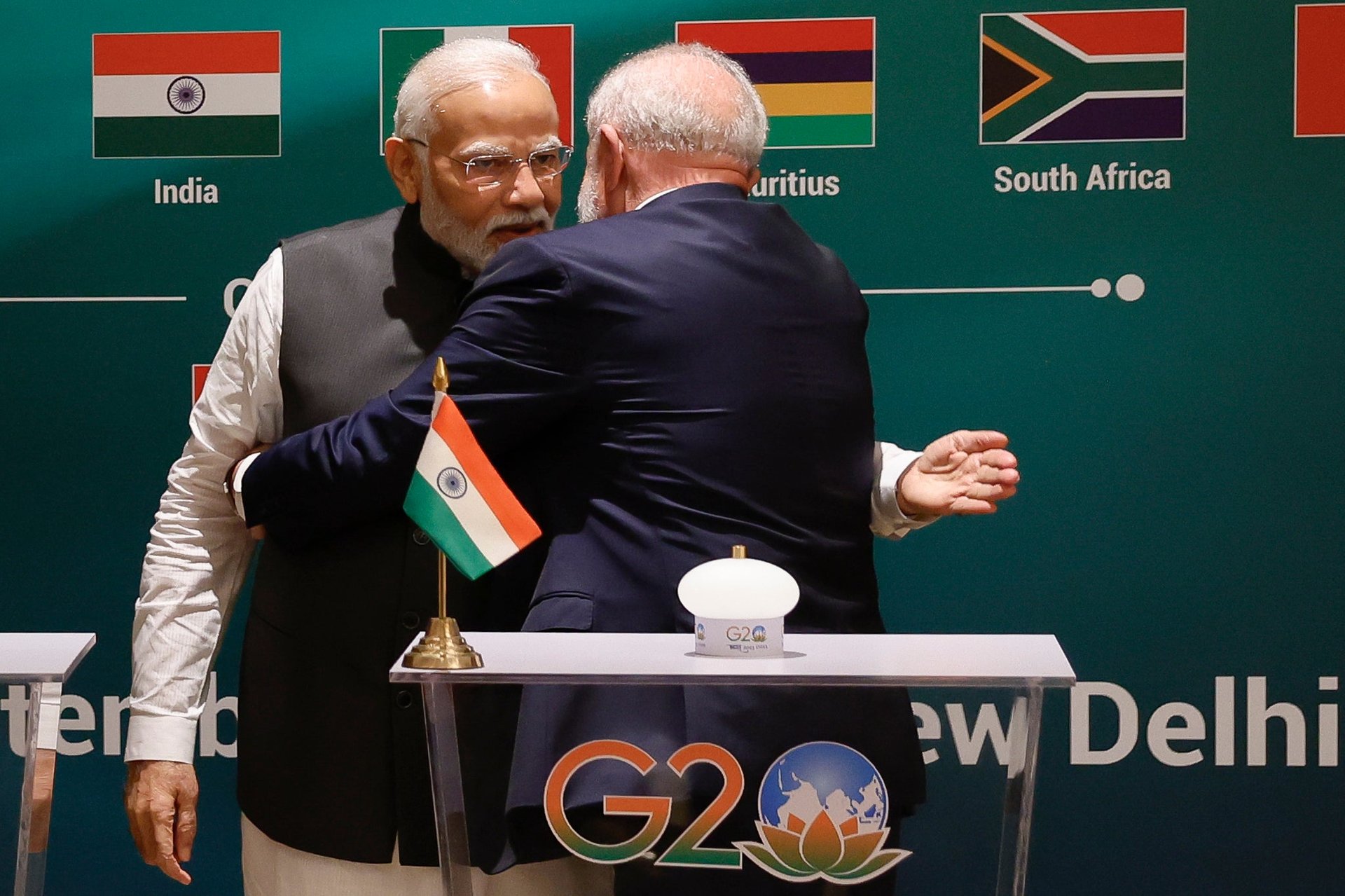Group of 20 countries agree to increase clean energy but reach no deal on phasing out fossil fuels
Group of 20 leaders have agreed to triple renewable energy and try to increase the funds for climate change-related disasters but maintained the status quo with regards to phasing out carbon spewing coal

NEW DELHI (AP) — Group of 20 leaders agreed Saturday to triple renewable energy and try to increase the funds for climate change-related disasters but maintained the status quo with regards to phasing out carbon spewing coal.
Suggested Reading
At a news conference shortly after the G20 leaders — whose countries also emit 80% of all planet-warming gases — announced the agreement, Amitabh Kant, a senior Indian government official leading some of the G20 negotiations, called it "probably the most vibrant, dynamic and ambitious document on climate action.”
Related Content
While most climate and energy experts were not as ebullient, they agreed that the G20 leaders had put out a strong message on climate action, even as the world is seeing increasingly frequent natural disasters such as extreme heat.
Even at the last meeting of the G20 climate ministers before the summit, disagreements had remained.
Global leaders and climate experts say the declaration had largely taken the conversation forward, setting the stage for an ambitious climate agreement when they meet at the global climate conference, COP28, in Dubai later this year.
“These 20 countries account for 80% of global emissions, so this declaration sends a powerful signal for climate progress," said Sultan al-Jaber, who will preside over the climate summit in Dubai.
Some climate activists said more could be done.
“While the G20’s commitment to renewable energy targets is commendable, it sidesteps the root cause — our global dependency on fossil fuels,” said Harjeet Singh of Climate Action Network International.
According to a report by Global Energy Monitor, an organization that tracks a variety of energy projects around the world, the G20 countries are home to 93% of global operating coal power plants and 88% of new proposed coal power plants that don't have carbon capture technologies.
"It’s high time for rich nations in this group to lead by example, turn their promises into actions, and help forge a greener, more equitable future for all,” said Singh, who has tracked international climate negotiations for over two decades.
For the first time, the G20 countries agreed on the amounts required to shift to clean energy. The document states that $5.9 trillion is need up to 2030 by developing countries to meet their climate goals. An additional $4 trillion will be needed every year until the end of the decade if developing countries are to reach net zero emissions by 2050, it said.
“This G20 has seen many firsts,” said Madhura Joshi, a Mumbai-based energy analyst with the climate think tank E3G. “However, it’s disappointing that the G20 could not agree on phasing down fossil fuels.”
"Increasing renewables and reducing fossil fuels need to necessarily happen together – we need stronger bolder action from leaders on both. All eyes now on COP28 – can the leaders deliver?” she said.
___
Associated Press climate and environmental coverage receives support from several private foundations. See more about AP’s climate initiative here. The AP is solely responsible for all content.
